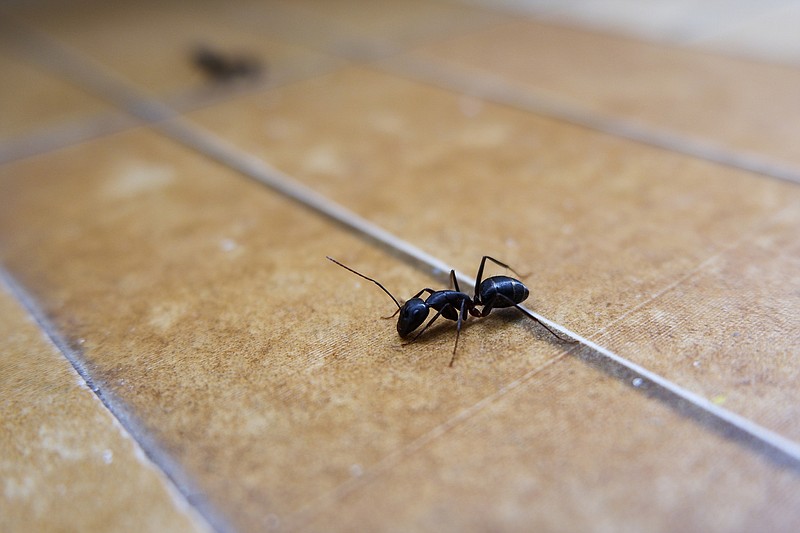Summertime is quickly approaching, and while people may be hoping to spend more time outdoors, one insect could be paying a visit inside.
Many parts of the country are home to multiple species of ant, including carpenter, pavement, ghost and acrobat ants, just to name a few.
Professor Raymond Cloyd, Ph.D. with Kansas State University's Department of Entomology, said ants are active almost year-round even in colder climates, from spring to early winter.
"They're active in the spring when the reproductive swarmers come out ... the males die ... the females start laying eggs," Cloyd said. "That occurs again in the fall, early winter time, but ants ... can be active all year-round, depending on the environmental conditions."
Cloyd said specifically when the weather is wet, ants will try to find a protected environment, like a home or office, to shelter in. If you're hoping to keep ants outside this summer, here are some ways you can do so.
The entomologist said the most common way for ants to get into the home is existing openings, like cracks or crevices.
"Any openings, like in the foundation or under doors or ... windows that don't seal very well, those are some of the areas they can get into," Cloyd said.
The best way to prevent ants finding openings is to seal them off.
"Ants are pretty smart, they can find openings," he said. "Sealing cracks and crevices, putting door sweeps in, just preventing any access" can help limit intrusion into your home.
Cloyd also recommends keeping tree branches off of the roof. When tree branches are lying on the roof, ants can climb from the trees onto the branches and make their way into your home.
Here are some natural repellents to keep ants away from your home, from BugMD:
Peppermint oil: Spray a mixture of peppermint oil and water around your home.
White vinegar: Mix together vinegar and water and spray it or wipe areas down where ants are entering.
Cinnamon: Sprinkle where ants are entering.
Borax: Make a paste by mixing 1/2 teaspoon borax, 8 teaspoons sugar and 1 cup water, then put it where ants are in the home.
Diatomaceous earth: Sprinkle where ants are entering.
Cloyd said he's also seen people use orange peels and orange oil, but wants people to remember those are just temporary fixes.
"You're not killing them, you're just repelling them and then ... they'll move somewhere else," he said.
The most effective way of getting rid of ants in your house is using baits, Cloyd said. Baits, which contain insecticides, attract worker ants to carry small portions back to the colony, ultimately killing the entire colony.
The most common one he recommends is boric acid, which is usually safe around pets and humans.
Cloyd doesn't recommend using a spray insecticide to fight off ants inside your home.
"So it's really bait management, using baits, changing them frequently, you may have to change them throughout the year because they tend to want to feed on proteins early in the spring and switch to carbohydrates later in the summertime," he said.
Cloyd said if you have any concerns or questions regarding ants in the home, you should reach out to your local pest control.

